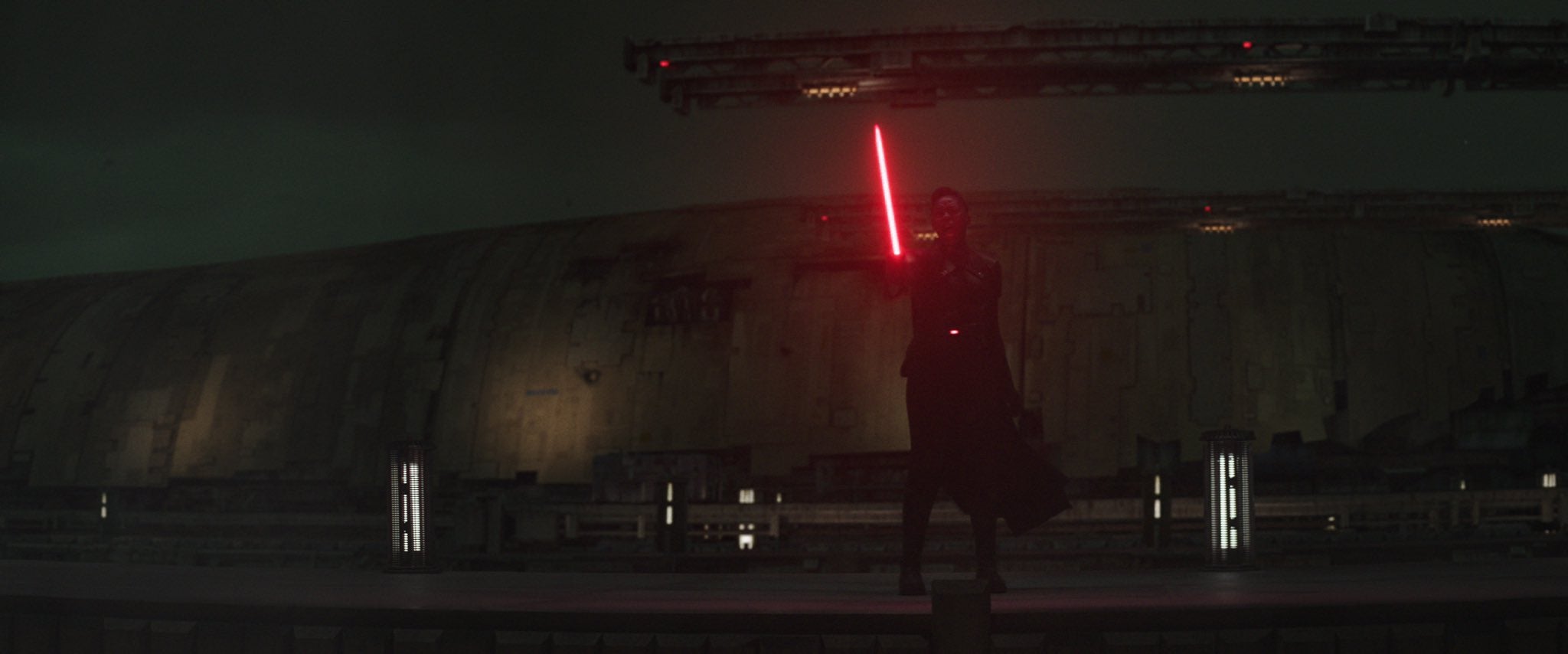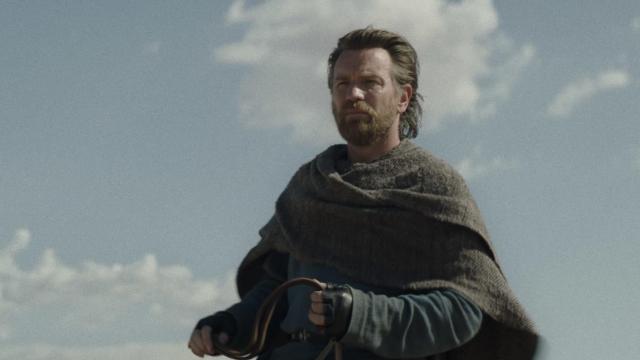If we take a step back from Obi-Wan Kenobi, the series feels like a narrative waypoint. We know Kenobi’s past, we know how he ends up, so where is the movement in this series? How does Obi-Wan Kenobi push the arc of the galaxy far, far away towards its predetermined end?
Truthfully speaking, I don’t think there is much movement, and I think that’s entirely on purpose. The point of Obi-Wan Kenobi isn’t to mark out great battles or universe-shattering encounters between the forces of good and evil, but instead to recognise the importance of individual perspectives and emotional arcs in a massive franchise that often seems intent on starting interstellar dogfights every 20 minutes.
There is something pretty unique about a television series where many viewers have a relatively complete knowledge of a character’s storyline, motivations, and even emotional hangups. It makes lines like Kenobi’s “Whether he dies or I do, this ends today” feel slightly less urgent. Instead, this is a moment of tragedy. This conflict does not end today. This line, delivered by an earnest and determined Kenobi, opens up a new kind of storytelling because most of the viewers know that this isn’t true. The tension of that upcoming conflict exists, but not because we think that these characters are at risk, but because there must be something else important at the end of the episode.
Obi-Wan Kenobi is storytelling rooted in how all of the main characters change their views of themselves. The exact nature of the conflict doesn’t matter to the longer narrative, because everyone watching knows that the fight between Kenobi and Vader will be a draw with collateral damage… but we knew that going in! What’s great about Obi-Wan Kenobi is the audience can watch the show for character arcs and development, focusing on the realisations of traumatized characters as they go on a journey towards meaning in a world that has been made hostile to their very existence.
This is a very non-Western, nontraditional narrative that emphasises personal change over triumph through physical confrontation. This is clearly laid out in the final episode, where flashbacks show Kenobi and Anakin Skywalker sparring in the Jedi Temple on Corsucant. As Skywalker attacks he is continually outmatched by Kenobi, not necessarily because he’s not skilled enough to win, but because he wants to win, because he has let his desire for triumph supercede any chance for growth, learning, or change. This is his failure as a Jedi, and as a person, he is unable to change. This is repeated throughout the final confrontation on Tatooine. Even though Skywalker is presumably more powerful than Kenobi, he needs to win more than he attempts to understand himself. This is ultimately why he fails.
Obi-Wan Kenobi grapples with Jedi lore in interesting ways. So much of what the Jedi believe is taken from Buddhist beliefs and practices, but delivered through sword-wielding space frogs and the ramblings of wizard monks who attempt justice and end up bound in contradictions and exceptions. In this show, instead of letting go of their feelings, the Jedi are asked to really feel them. To understand them, respond to them, and ultimately, use them to their advantage. The Sith have always done this, but what about feelings of hope, justice, love? As Vader sinks deeper into his own sense of injustice and selfishness, Kenobi accepts his hurt, his fear, and ultimately his own desire to live. He does not let these emotions go or move beyond them, but he uses them to grow. The show is about changing through conflict, not winning conflicts. Winning doesn’t matter. Surviving and growing, understanding yourself — that’s what matters.
Darth Vader is unable to change. He has become a fixed person, and until the unmaking of himself at the end of Return of the Jedi, he will remain the same. He will always be afraid to lose, afraid to be dismissed, and desperate for validation. When he says, “Anakin is gone. I am what remains,” Vader is stating that he has made a decision a long time ago about who he is, and what remains of himself. He reinforces this reading when he says to Kenobi, “You didn’t kill Anakin Skywalker, I did.” This moment does two things: it again emphasises that he is a fixed point, and it allows Kenobi to change his understanding of Vader, and therefore, his understanding of himself. And this kind of emphasis on moving beyond your initial understandings is an important point to make. Often these reveals of “truth” are done in order to lead the hero to the correct conflict, the righteous fight, the true evil. In this case, every conflict is done with the express purpose of asking the people at the centre of the conflict to grow.

When Reva yells “You can’t run from him, Obi-Wan,” in episode two, she is a harbinger. Kenobi is unable to run from his past and his future. He cannot change these conflicts, but he can change himself. The show sums it up clearly in episode six, when Roken says to Kenobi “It’s about you and him” as they attempt to escape Vader. Within these moments of realisation is the cycle of understanding and character development that this whole series is about, so much more so than it’s about the sword fights or kidnappings. All the conflict leads to the movement of character, not plot.
Besides Kenobi and Vader, the series further emphasises this nontraditional narrative with its treatment of Reva. Throughout the entire series, Reva is an unreliable narrator of her own feelings and motivations, contradictory and furious. But at the end, she finally accepts that she cannot change the past or overcome her own trauma through continuing a cycle of conflict. Reva has chosen to change. Even Kenobi recognises this as the important moment for her when he says, “Who you become now is up to you.”
The entire show is about this new beginning, this understanding that you are constantly moving through moments in your life that will change you. That emotions and feelings and moving through these cycles will free you and create you anew. As for the conflicts? The fighting, the sword matches, the space battles? They are important, but in Obi-Wan Kenobi, they aren’t the focus. They are just a means to an end, and not the end itself. “The future,” as Kenobi says, “will take care of itself.”
Want more Gizmodo news? Check out when to expect the latest Marvel and Star Wars releases, what’s next for the DC Universe on film and TV, and everything you need to know about House of the Dragon and Lord of the Rings: The Rings of Power.
